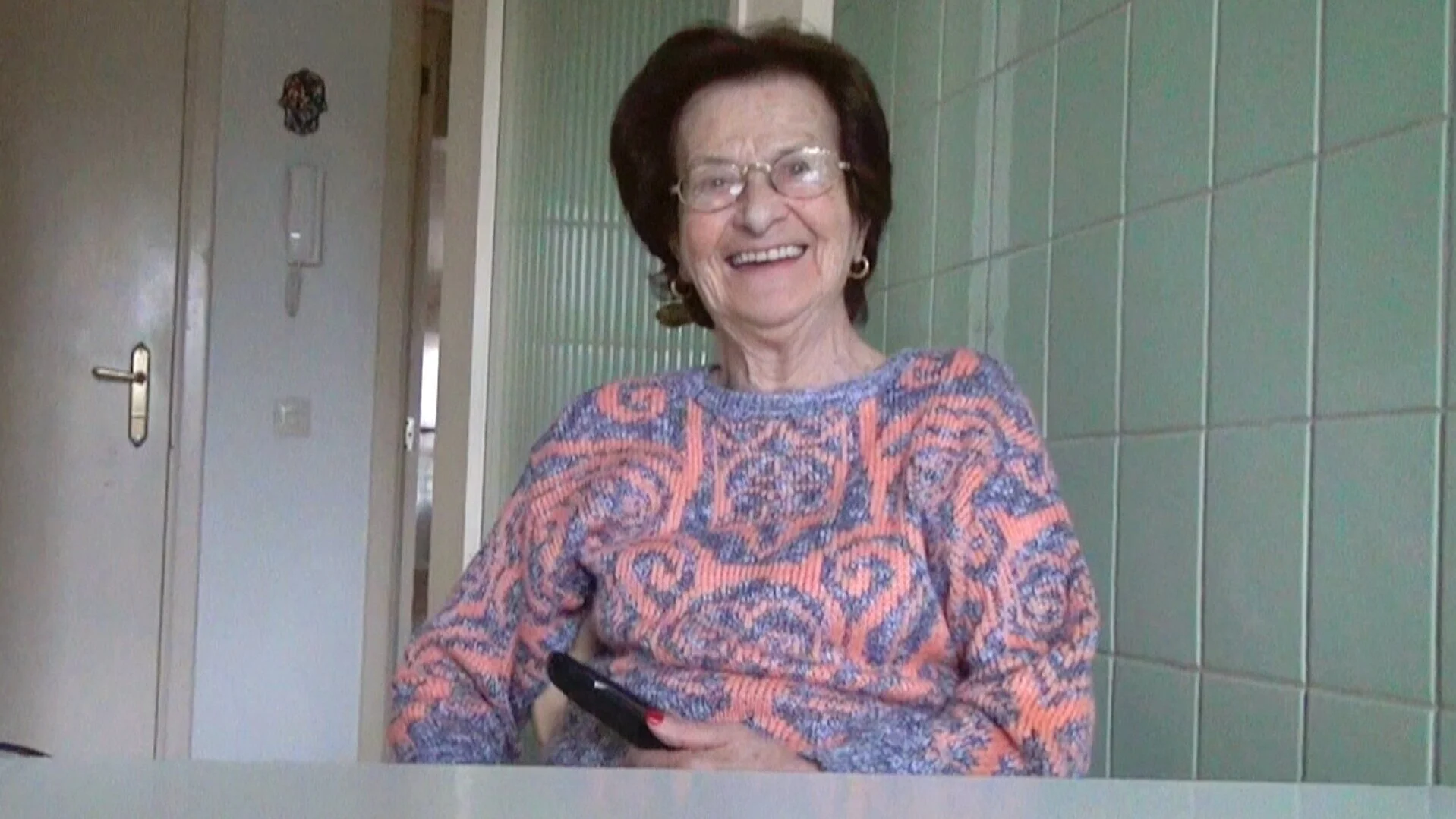No Home Movie
Faced with this kind of movie, the critic’s job is to describe rather than to assess, thus rendering the rating no more than a personal reaction of limited value.
After Auschwitz: Natalia Akerman
Chantal Akerman chose to end her life last year thus making this documentary feature the last work in a career that had lasted over forty years. It had made her a key figure in avant-garde cinema ever since her 1975 feature starring Delphine Seyrig, Jeanne Dielman, 23 Quai du Commerce, 1080 Bruxelles. On occasion - and in particular with the musical Golden Eighties (1986) - Akerman attempted something more commercial, but she was essentially of the avant-garde, and No Home Movie is entirely in that vein, a piece that is decidedly minimalistic and greatly favours long-held static shots.
The film focuses on her aged mother Natalia in her Brussels apartment and, although conversations between mother and daughter feature (some on Skype when Chantal is contacting her mother from Oklahoma or New York), Akerman herself is often a voice-off or a half-seen figure. Later on, we do see her sister, but it is always Natalia who is the prime figure. We feel the bond between the filmmaker and her mother strongly, even if the film does seem to express a sense of guilt over not seeing her enough.
All of this could have been presented in a more conventional film which could have engaged a wide audience. In contrast to that, Akerman’s way is evident from the start: a shot of trees in gale-force winds with a little traffic on a distant road. This static shot at once becomes symbolic, an image of battering that suggests survival, but not forever so that impending death is hinted at too. It’s a rich, symbolic image, but Akerman holds the shot for an eternity, much longer than it takes to register its implications. And so it goes on, with at least two long tracking shots over barren desert providing contrast with the mainly static interiors but adding little.
Early talk of the family and of Chantal’s childhood does establish the Jewish background, but it is only very late on that we learn that Natalie was a survivor of Auschwitz. Playing that down is characteristic of Akerman’s work (the enormously long Jeanne Dielman concentrated on daily chores and routine) and it is touching that she was as confident in featuring her mother’s old age in that style as she was when using Delphine Seyrig to portray Jeanne Dielman. The comparison also underlines her consistent viewpoint as an artist and as her own photographer here she creates some fine images. There is not a touch of sentimentality in this work and, if the style adopted could hardly be more self-conscious, it is never in the least manipulative of the audience. For all that, I found watching No Home Movie a very long 113 minutes and I will not be alone in that. But it needs to be stressed that among those who can embrace the avant-garde Akerman has many admirers, including filmmakers Joanna Hogg and Carol Morley. Go expecting something more straightforward and you will most certainly be taken aback, but Akerman remained true to herself and if this kind of film appeals to you, you will find it rewarding.
MANSEL STIMPSON
Featuring Natalia Akerman, Sylviane Akerman, Chantal Akerman.
Dir Chantal Akerman, Pro Patrick Quinet, Serge Zeitoun and Chantal Akerman, Ph Chantal Akerman, Ed Claire Atherton.
Paradise Films/Liaison Cinématographique/Chemah IS-Contemporary Films.
115 mins. Belgium/France. 2015. Rel: 24 June 2016. No Cert.


